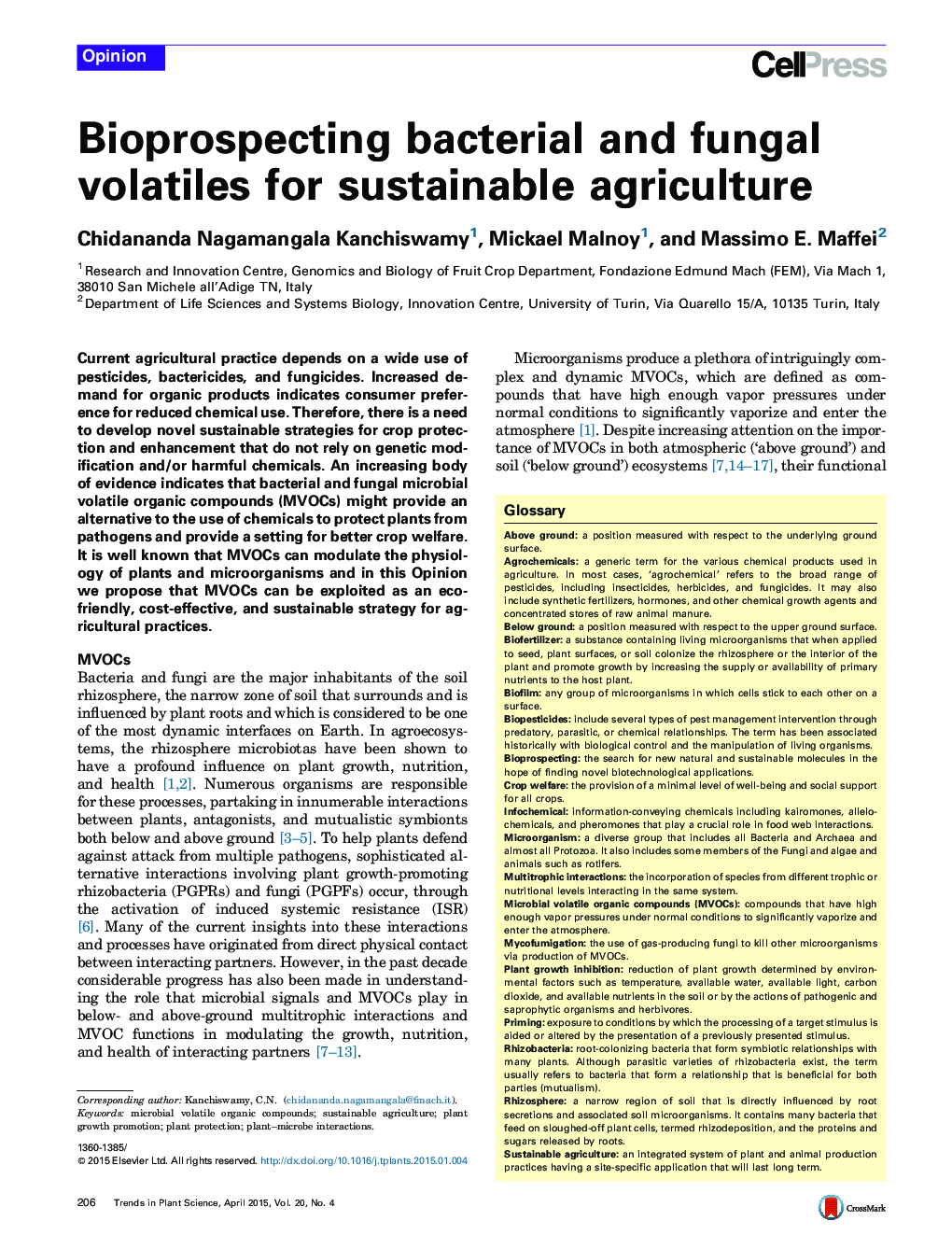| Article ID | Journal | Published Year | Pages | File Type |
|---|---|---|---|---|
| 2825961 | Trends in Plant Science | 2015 | 6 Pages |
•MVOCs exert significant effects on microbes and plants.•MVOCs are produced both below and above ground and interfere with the rhizosphere and the atmosphere.•We propose that MVOCs can be exploited as an ecofriendly and sustainable strategy for agricultural practices.•MVOCs could replace the need for genetic modification, harmful pesticides, fungicides, and bactericides.
Current agricultural practice depends on a wide use of pesticides, bactericides, and fungicides. Increased demand for organic products indicates consumer preference for reduced chemical use. Therefore, there is a need to develop novel sustainable strategies for crop protection and enhancement that do not rely on genetic modification and/or harmful chemicals. An increasing body of evidence indicates that bacterial and fungal microbial volatile organic compounds (MVOCs) might provide an alternative to the use of chemicals to protect plants from pathogens and provide a setting for better crop welfare. It is well known that MVOCs can modulate the physiology of plants and microorganisms and in this Opinion we propose that MVOCs can be exploited as an ecofriendly, cost-effective, and sustainable strategy for agricultural practices.
